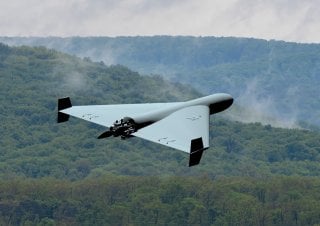Iran and Russia are Growing Military Ties in the Shadow of the Ukraine War
While Moscow and Tehran have shared warmer relations for decades, a revival of the nations’ allyship occurred when the former invaded Kyiv.
Relations between Iran and Russia continue to warm amidst an increasingly unstable geopolitical climate. The two allies signed a cooperative agreement this week, signaling Tehran and Moscow will lean on each other more as they similarly face a slew of Western sanctions. This “comprehensive strategic partnership,” penned by Russian president Vladimir Putin and his Iranian counterpart Masoud Pezeshkian, notably occurred just three days prior to Donald Trump’s second term as U.S. president. Since February 2022, the Kremlin has been fully immersed in its ongoing Ukraine invasion. The Iranian regime has been fighting a multifaceted war against Israel, involving its regional affiliate groups in Lebanon, Gaza, and Yemen. Both nations aspire to counter what their leaders call a U.S.-led “global hegemony” by improving ties, particularly in the military sector.
Iran has been fueling Russia’s drone war in Ukraine
While Moscow and Tehran have shared warmer relations for decades, a revival of the nations’ allyship occurred when the former invaded Kyiv. In fact, the Iranian regime became Russia’s most significant military backer since the conflict started in 2022. Many of Russia’s unmanned aerial vehicle (UAV) barrages targeting Ukraine have been fueled by Iran. Western intelligence and the Ukrainian government have confirmed the sale, delivery, training, and use of an array of Iranian-designed lethal drones by Russian forces over the last two-plus years. Images and footage depicting both the Iranian Shahed-136 and Shahed-131 UAVs used in Russian-launched attacks targeting energy and civilian infrastructure in Ukraine have been well documented.
Moscow may be returning the favor
Iran is allegedly being “reimbursed” for its UAV transfers, according to news outlets. The New York Times quoted Iranian officials this summer claiming that Moscow had begun delivering advanced air defense and radar equipment to Tehran. While Iran already possesses Russian-designed S-300 air defense systems, the newer S-400 variant is now in service and considered to be more capable than its predecessor. Additionally, Tehran has long desired to acquire Russia’s Su-35 fighter jet platform to upgrade its aging fleet. However, Moscow is unlikely to deliver on this front considering it needs all the fighters it can service in its ongoing Ukraine invasion.
Both Iran and Russia suffered a major loss when the Assad regime was ousted in Syria last month. Since Damascus served as an integral pillar of Tehran’s proxy warfare strategy and as Moscow’s Middle Eastern foothold, the collapse of their mutual ally’s government was significant. The newly penned treaty between the two nations suggests the allies will lean on each other more to make up for perceived losses in the region.
“This (treaty) creates better conditions for bilateral cooperation in all areas,” said Putin. “We need less bureaucracy and more concrete action. Whatever difficulties are created by others we will be able to overcome them and move forward,” Putin added, referring to Western sanctions on both nations. Moscow and Tehran have also been seeking stronger allyship with Pyongyang in recent years, suggesting that a new Axis of power could be on the rise.
About the Author: Maya Carlin
Maya Carlin, National Security Writer with The National Interest, is an analyst with the Center for Security Policy and a former Anna Sobol Levy Fellow at IDC Herzliya in Israel. She has by-lines in many publications, including The National Interest, Jerusalem Post, and Times of Israel. You can follow her on Twitter: @MayaCarlin. Carlin has over 1,000 articles published over the last several years on various defense issues.
Image: Shutterstock.

